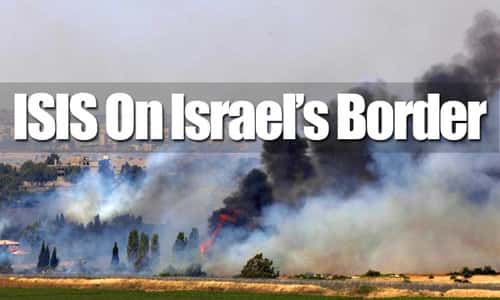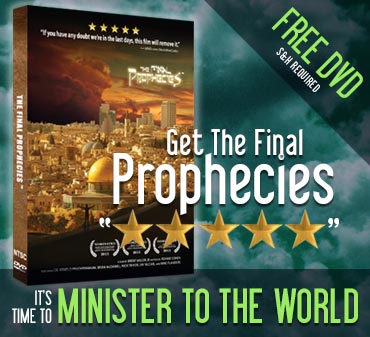Islamic State Just One Element Of The 'Chaos' At Israel-Syria Border
 By Ariel Ben Solomon/JNS.org December 07, 2016
Share this article:
By Ariel Ben Solomon/JNS.org December 07, 2016
Share this article:
The recent attention-grabbing exchange of fire between Israel and
Islamic State is just one aspect of the Jewish state's assessment of the
current threats at its northern border with Syria.
Israeli
forces killed four fighters from the Islamic State-affiliated Yarmouk
Martyrs Brigade Nov. 27 after the terrorists had fired at Israel Defense
Forces (IDF) soldiers in the Golan Heights border region. The exchange
drew significant attention because it was the first report of an Islamic
State attack on Israel from Syria.
Islamic
State has previously threatened Israel, but until now the terror group
did not appear to open such a front at the Israel-Syria border.
Yet
despite the numerous news headlines that followed the Islamic State
attack, the Yarmouk Martyrs Brigade does not have nearly as large of a
footprint in the region as Hezbollah or its patron, Iran, which have
been increasing their presence in Syria to back President Bashar
al-Assad's regime in that country's civil war.
The IDF estimates that about 120,000 Hezbollah rockets
are aimed at Israel. Hezbollah has a full-blown army with around 45,000
members, 21,000 of whom are regularly in service, Haaretz reported in
July.
By contrast, the Yarmouk Martyrs Brigade
has between 600 and 1,000 fighters, according to a report in The
Economist in January. The report quoted Israeli officers as calling the
brigades "Daesh lite," using an alternative name for Islamic State.
Given
that Hezbollah's forces amount to a far greater security threat to
Israel, the Islamic State attack may have been no more than an effort by
the jihadist group to distract from its losses in Syria and Iraq.
Israeli
Deputy Regional Cooperation Minister Ayoub Kara (Likud) told JNS.org
that three groups--the al-Qaeda linked Nusra Front, the Western-backed
Free Syrian Army, and Islamic State--are struggling for control of the
area near Israel's border.
These groups
"sometimes fight each other," Kara said. Three enemies of Israel--the
Syrian army, Hezbollah, and Iran--are on the other side of Syria's civil
war, he noted. Besides the rebel group led by Syrian opposition leader
Kamal al-Labwani, "all of these groups in the area are against us," said
Kara.
"Islamic State is trying to get close to
our border to attack in order to gain popularity," asserted the deputy
minister. But he added, "Islamic State, Assad, Hezbollah, and Iran have
no interest right now in getting Israel involved."
Syrian rebel leader Labwani told JNS.org that there is "chaos" on the Syrian side of the Golan Heights.
"We need to create one authority," said the rebel activist, who has many sources on the ground in the area.
Speaking
from Sweden, Labwani claimed that Hezbollah could have been behind the
Nov. 27 attack rather than Islamic State. Hezbollah is paying rebels to
carry out attacks on Israel, he claimed. Israel's Kara, however,
maintained that Islamic State carried out the recent attack.
Labwani,
who snuck out of Syria in 2012 and who has visited Israel, has
supported the implementation of a safe zone that buffers Israel's border
with Syria, though he admits that such a move would need to be approved
by the U.S. and/or Russia.
Asked how the
southern Syrian region is fairing from Israel's perspective, Labwani
responded that the situation is manageable, but that the Jewish state
should be more proactive in bringing about the safe zone.
Mendi
Safadi, an Israeli Druze political activist who has traveled in the
region and met with leaders of Syria's opposition, said the Yarmouk
Martyrs Brigade was responsible for the Nov. 27 attack and that the
brigade is comprised of Syrian Palestinians.
"Yarmouk
is not a typical Islamic State group, but has taken advantage of the
popularity of Islamic State in order to raise funds," said Safadi,
adding that this represents another example of the radicalization of
Islamist groups.
He added, "Yarmouk's
abilities are limited compared to the core Islamic State [organization],
but they presumably will continue operations against Israel unless
Israel launches pre-emptive strikes."
Moti Kahana, an American-Israeli businessman and founder
of the American Jewish NGO Amaliah, which delivers humanitarian supplies
to Syrian civilians, said that because of the humanitarian crisis in
the southern province of Quneitra bordering Israel, the Nusra Front and
Islamic State have sought to provide aid to win the hearts and minds of
the Syrian population.
Amaliah is the only
organization delivering aid to Syrians from the Golan Heights in
coordination with the IDF. Syrian women and children are also being
brought into Israel for medical treatment. Kahana said his group is
stepping up funding for aid because "if we don't bring humanitarian
supplies to the area, radicals will fill the vacuum."
He
worries that if President-elect Donald Trump's incoming administration
stops U.S. support for Syrian rebels, Islamist-supporting Qatar would
step in, emboldening the Islamist nature of the Syrian opposition.
Indeed,
Qatari Foreign Minister Sheikh Mohammed bin Abdulrahman al-Thani told
Reuters last month that if the U.S. cuts funding for the rebels, Qatar's
support for rebels "is going to continue, we are not going to stop it."
Kahana
is a Democrat who explained that for the past four years, he tried to
get the Obama administration to implement safe zones in Syria, but got
no support. Now, Kahana is optimistic about the Trump administration's
Syria policy because Trump himself has voiced support for safe zones.
"The
Trump administration does not want Syrians coming to America, but for
them to stay in their country," Kahana told JNS.org. "And the only way
to do this is by creating safe zones."
Originally published at JNS.org - reposted with permission.


No comments:
Post a Comment